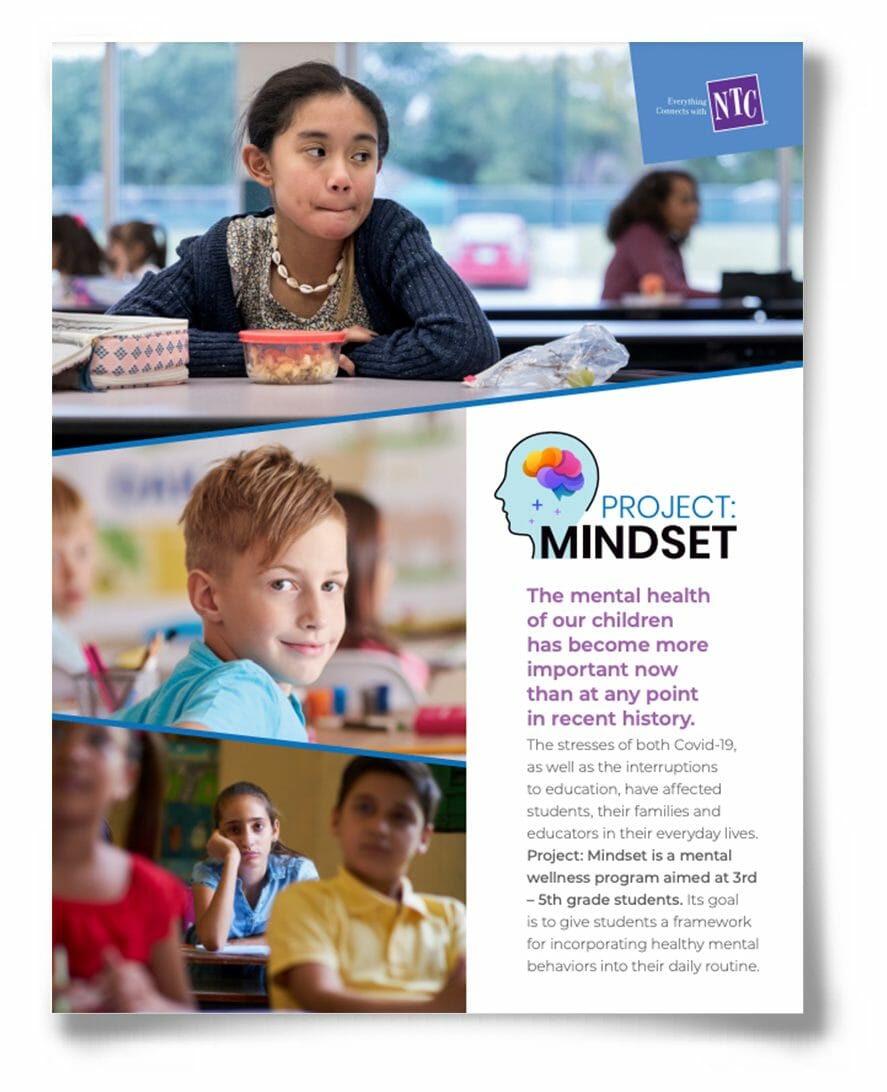– US Department of Education, report on Education in a Pandemic“Since 2006 the number of suicides for ages 10-14 has more than doubled, making it the second leading cause of death for this age group.”
-The Jason Foundation
“Depression, anxiety and behavioral disorders are among the leading causes of illness and disability among adolescents.”
-World Health Organization
“Recent studies indicate that approximately one in five teens between ages 12-18 suffer from at least one diagnosable mental health disorder.”
-Adolescent Wellness Academy
WHAT IS MENTAL WELLNESS IN SCHOOL AGE CHILDREN?

Mental wellness includes a child’s mental, emotional and behavioral well-being and contributes to a child’s overall health. Just like physical health, mental well-being affects how a child thinks, feels and acts. This plays a significant role in how well a child learns and grows and is foundational to a child’s future. Learning mental wellness habits early has life-long effects.
THE DEVELOPMENT GAPS
The global pandemic has created a chasm between the world before and the world after, with children caught in the middle. Standard development pathways for students have been interrupted, creating learning gaps in not only school readiness in core subjects and skills but in social and emotional development as well. The next generation of innovators, workers, thinkers, leaders, connectors and citizens is at risk. If children are the future, then mending these gaps is an investment in our future.
MENDING THE GAPS
The next generation has hit a mental health wall with long term consequences. The longer these gaps are allowed to persist the wider they grow and the worse the future looks. Mental wellness education is necessary to mending the gaps. All indicators point to early intervention as vital to ensure that the next generation is healthy—mentally, physically and intellectually—to tackle 21st century challenges.
Mental wellness education can help children learn and grow throughout their lives. Children need to learn healthy ways to:
- Handle stress
- Build supportive relationships
- Develop life-long mental health habits
TEACHERS, SCHOOLS AND COMMUNITIES ARE KEY
Development gaps are a communal problem and mending them requires a communal solution. Mending development gaps needs to be done together. Supporting teachers and families and providing schools with mental wellness educational resources will impact the future of our communities. An investment in wellness resources now is an investment in resourcing tomorrow.
NTC has specialized in social norming educational outreach programs that teach, entertain and inspire communities for over 40 years. We are well-aligned to help organizations like yours invest in the well-being of your community. Your corporate social responsibility investment is an investment in the emotional health of the future with far reaching impacts.
Project Mindset is an interactive wellness education program aimed at students in grades 3-5 that supports a healthy mental outlook for students, educators, parents and families. The goal is to give students a framework for incorporating healthy mental behaviors into their daily routine.
Read more about Project Mindset and then contact us to discover how to sponsor this mental wellness program in your community and make an impact in mending the gaps together.






